INFN PROJECT TO STUDY NEUTRINOS RECEIVES EUROPEAN FUNDING
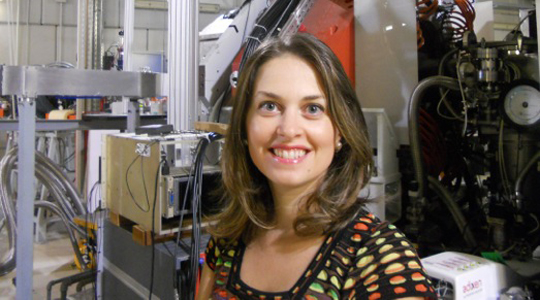 The European Research Council (ERC) has awarded the ERC Starting Grant 2016 to Manuela Cavallaro , researcher at the Southern National Laboratories (LNS) of the INFN in Catania.
The European Research Council (ERC) has awarded the ERC Starting Grant 2016 to Manuela Cavallaro , researcher at the Southern National Laboratories (LNS) of the INFN in Catania.
The name of the project is NURE (NUclear REactions for neutrinoless double beta decay) and the € 1,271 million grant is the full amount of funding requested. There were almost 3,000 applications and the European Research Council has awarded 325 ERC-2016-SGTs to young European researchers, for a total of € 485 million.
The purpose of the NURE project is to investigate certain aspects of the nature of neutrinos. We will study their mass, and test the hypothesis proposed by Ettore Majorana about 80 years ago on the dual identity of neutrinos. According to this hypothesis, a neutrino is both a tiny particle of matter and its own antimatter counterpart: an antineutrino.
Specifically, our project is an experimental contribution to the measurement of one of nature's building blocks, the nuclear matrix element, which links the average life of the nucleus that decays to the mass of the neutrino. Up until now this has been based on theoretical models. In this respect, our experiment can be considered complementary to others conducted elsewhere, for instance at the Gran Sasso National Laboratories (LNGS) of the INFN.




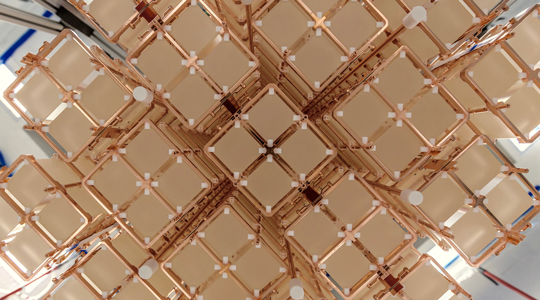 the CUORE Collaboration on Aug. 26 completed the month-long installation of the particle physics experiment’s large detector array . Located at the INFN Gran Sasso National Laboratory, 1.600 mt underground, CUORE will search for a never-before-seen particle transformation that could explain the abundance of matter in the universe. The experiment houses 1,650 pounds of tellurium dioxide crystals. (Credit: Yury Suvorov/ UCLA, LNGS; and CUORE Collaboration)
the CUORE Collaboration on Aug. 26 completed the month-long installation of the particle physics experiment’s large detector array . Located at the INFN Gran Sasso National Laboratory, 1.600 mt underground, CUORE will search for a never-before-seen particle transformation that could explain the abundance of matter in the universe. The experiment houses 1,650 pounds of tellurium dioxide crystals. (Credit: Yury Suvorov/ UCLA, LNGS; and CUORE Collaboration)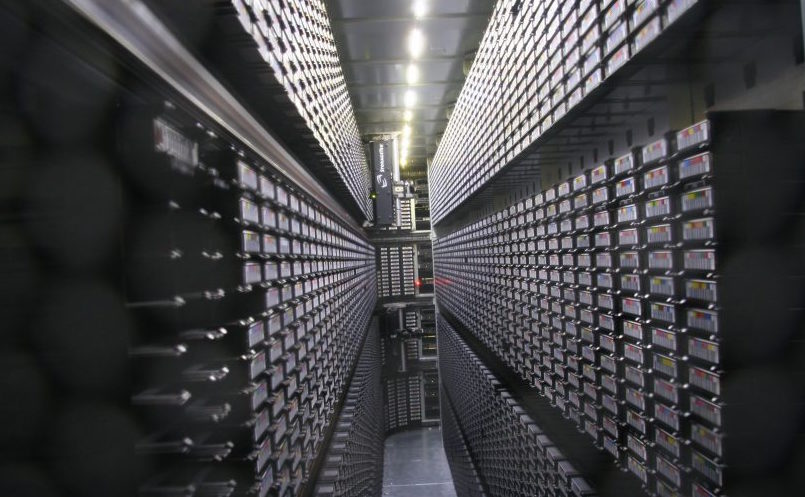 INDIGO–DataCloud, the project funded within the scope of the European Horizon 2020 programme of the European Commission and coordinated at the continental level by the National Institute for Nuclear Physics (INFN), in mid-August reached an important milestone: the release of the first version of Cloud software platform for scientific research. Called Midnight Blue, the platform is open source, flexible and free-of-charge and capable of operating on both public as well as private Cloud infrastructures. The goal is to provide the European scientific community with tools to do research more effectively. A platform able to respond at the same time to the calculation, processing and data storage needs of researchers from very different disciplines, without having to rewrite the software from scratch each time, through the common use of advanced functionalities provided by the INDIGO
INDIGO–DataCloud, the project funded within the scope of the European Horizon 2020 programme of the European Commission and coordinated at the continental level by the National Institute for Nuclear Physics (INFN), in mid-August reached an important milestone: the release of the first version of Cloud software platform for scientific research. Called Midnight Blue, the platform is open source, flexible and free-of-charge and capable of operating on both public as well as private Cloud infrastructures. The goal is to provide the European scientific community with tools to do research more effectively. A platform able to respond at the same time to the calculation, processing and data storage needs of researchers from very different disciplines, without having to rewrite the software from scratch each time, through the common use of advanced functionalities provided by the INDIGO 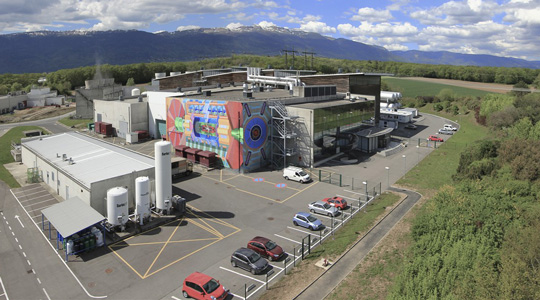 On 22 August last, the Minister of Foreign Affairs and International Cooperation, Paolo Gentiloni, paid a visit to CERN in Geneva, accompanied by an Italian delegation led by Ambassador Enrico Serra and consisting of, among others, INFN President Fernando Ferroni and Vice President Antonio Masiero. In Geneva, the Minister met, among others, the Director-General Fabiola Gianotti, the head of the Department of Theoretical Physics at CERN, Gian Giudice, and the head of the international ALICE
On 22 August last, the Minister of Foreign Affairs and International Cooperation, Paolo Gentiloni, paid a visit to CERN in Geneva, accompanied by an Italian delegation led by Ambassador Enrico Serra and consisting of, among others, INFN President Fernando Ferroni and Vice President Antonio Masiero. In Geneva, the Minister met, among others, the Director-General Fabiola Gianotti, the head of the Department of Theoretical Physics at CERN, Gian Giudice, and the head of the international ALICE 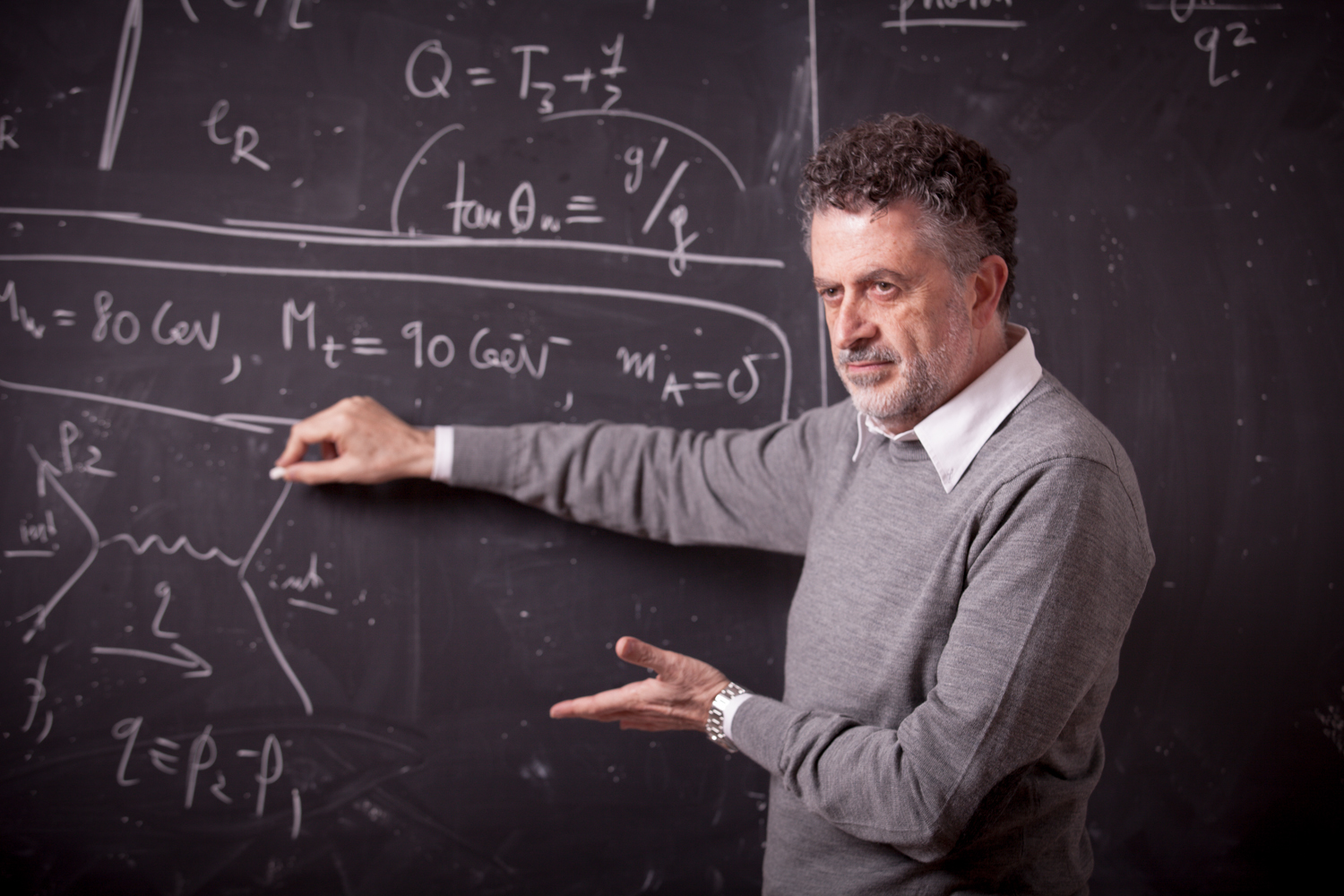 On 8 August last, the Rector of the new Gran Sasso Science Institute (GSSI) Graduate School was elected. He is Eugenio Coccia, former director of the Gran Sasso National Laboratory, from 2003
On 8 August last, the Rector of the new Gran Sasso Science Institute (GSSI) Graduate School was elected. He is Eugenio Coccia, former director of the Gran Sasso National Laboratory, from 2003 

